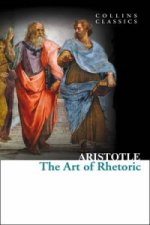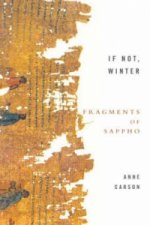
Kód: 04537148
Commonwealth of Letters
Autor Peter J. Kalliney
Commonwealth of Letters complicates the traditional understanding of the relationship between elite, aging modernists like T.S. Eliot and the generation of colonial poets and novelists from Africa and the Caribbean- Kamau Brathwai ... celý popis
- Jazyk:
 Angličtina
Angličtina - Vazba: Pevná
- Počet stran: 336
Nakladatelství: Oxford University Press Inc, 2013
- Více informací o knize

Mohlo by se vám také líbit
-

Difficulty of Crossing a Field
588 Kč -

De Jung mit'n Tüdelband
223 Kč -

Coleridge and Shelley
5308 Kč -

Creating Belfast
613 Kč -

Darkest Evening
278 Kč -

Medikidz Explain Sickle Cell Disease
390 Kč -

Commentary and Reference Survey
712 Kč
Darujte tuto knihu ještě dnes
- Objednejte knihu a zvolte Zaslat jako dárek.
- Obratem obdržíte darovací poukaz na knihu, který můžete ihned předat obdarovanému.
- Knihu zašleme na adresu obdarovaného, o nic se nestaráte.
Více informací o knize Commonwealth of Letters
Nákupem získáte 317 bodů
 Anotace knihy
Anotace knihy
Commonwealth of Letters complicates the traditional understanding of the relationship between elite, aging modernists like T.S. Eliot and the generation of colonial poets and novelists from Africa and the Caribbean- Kamau Brathwaite, Ngugi wa Thiong'o, Jean Rhys, and others-who rose to prominence after World War Two. Rather than a mostly one-sided relationship of exploitation, Kalliney emphasizes how both groups depended on-and thrived off-one another. The modernists, dispirited by the turn to a kind of bland, welfare-state realism in literature and the rise of commercial mass culture, sought rejuvenation and kindred spirits amongst a group of emigre writers from the Caribbean and Africa who had been educated in the literary curriculum exported to the colonies in the years before 1945. For their part, the postcolonial writers, ambitious for literary success and already skeptical of the trend toward corruption and philistinism among their compatriot anticolonial politicians, sought the access to cultural capital and the comforting embrace of literature provided by metropolitan modernists. As a result, modernist networks became defined by the exchange between metropolitan and colonial writers. In several chapters, Kalliney provides compelling analyses of colonial writers in postwar cultural institutions, such as the BBC, literary anthologies, and high profile English publishers such as Faber & Faber and Heinemann, developer of the African Writers Series. Throughout, Kalliney acknowledges the elements of cultural imperialism, and paternalism involved in these relationships; however, he broadens our perspective on postcolonial writers by emphasizing the strategic ways they manipulated these elite modernist networks to advance their own cultural agendas.Transatlantic Modernism and the Emergence of Postcolonial Literature is a study of midcentury literary institutions integral to modernism and postcolonial writing. Several organizations central to interwar modernism, such as the BBC, influential publishers, and university English departments, became important sites in the emergence of postcolonial literature after the war. How did some of modernism's leading figures of the 1930s, such as T.S. Eliot, Louis MacNeice, and Stephen Spender, come to admire late colonial and early postcolonial literature in the 1950s? Similarly, why did late colonial and early postcolonial writers-including Chinua Achebe, Kamau Brathwaite, Claude McKay, and Ngugi wa Thiong'o-actively seek alliances with metropolitan intellectuals? Peter Kalliney's original archival work on modernist cultural institutions demonstrates that this disparate group of intellectuals had strong professional incentives to treat one another more as fellow literary professionals, and less as political or cultural antagonists. Surprisingly, metropolitan intellectuals and their late colonial counterparts leaned heavily on modernist theories of aesthetic autonomy to facilitate their collaborative ventures. For white, metropolitan writers, T.S. Eliot's notion of impersonality could help recruit new audiences and conspirators from colonized regions of the world. For black, colonial writers, aesthetic autonomy could be used to imagine a literary sphere uniquely resistant to the forms of racial prejudice endemic to the colonial system. This strategic collaboration did not last forever, but it left a lasting imprint on the ultimate disposition of modernism and the evolution of postcolonial literature.
 Parametry knihy
Parametry knihy
Zařazení knihy Knihy v angličtině Literature & literary studies Literature: history & criticism Literary studies: general
3166 Kč
- Plný název: Commonwealth of Letters
- Podnázev: British Literary Culture and the Emergence of Postcolonial Aesthetics
- Autor: Peter J. Kalliney
- Jazyk:
 Angličtina
Angličtina - Vazba: Pevná
- Počet stran: 336
- EAN: 9780199977970
- ISBN: 0199977976
- ID: 04537148
- Nakladatelství: Oxford University Press Inc
- Hmotnost: 630 g
- Rozměry: 234 × 163 × 28 mm
- Datum vydání: 26. September 2013
Oblíbené z jiného soudku
-

How to Read a Book
283 Kč -

The Picture of Dorian Gray
158 Kč -

Three Theban Plays
232 Kč -

Edda
240 Kč -

Idiot
259 Kč -

Sejong Korean Extension Activity Book 1A - English Edition, m. 1 Audio
547 Kč -

Branching Streams Flow in the Darkness
682 Kč -

Moby-Dick
612 Kč -

Story of Hong Gildong
258 Kč -

Why Read the Classics?
258 Kč -

Strange Things
283 Kč -

Art of Shakespeare's Sonnets
848 Kč -

Philosophical Walking Tour with C. S. Lewis
1248 Kč -

Poetic Edda
1580 Kč -

Stigmata
576 Kč -

Great Expectations
163 Kč -

Pickwick Papers
239 Kč -

Mysteries of Udolpho
269 Kč -

Iliad
96 Kč -

Discarded Image
452 Kč -

Sicilian Romance
208 Kč -

Beowulf
123 Kč -

Meditations in an Emergency
304 Kč -

Plainwater
393 Kč -

Analysis of Roland Barthes's The Death of the Author
203 Kč -

Herbert Poems
258 Kč -

Art of Rhetoric
80 Kč -

Saga of Tanya the Evil, Vol. 3
252 Kč -

Anna Karenina
218 Kč -

Collected Poems
482 Kč -

Consolation of Philosophy
258 Kč -

Sejong Korean Student Book 2A - English Edition, m. 1 Audio
730 Kč -

If Not, Winter: Fragments Of Sappho
433 Kč -

Moveable Feast
239 Kč -

Wide Sargasso Sea
220 Kč -

Golden Bough
380 Kč -

Simple Passion
220 Kč -

Little Women
206 Kč -

Finn and Hengest
258 Kč -

Analysis of Donna Haraway's A Cyborg Manifesto
221 Kč -

Devils
268 Kč -

Two Treatises of Government
226 Kč -

Life of Samuel Johnson
623 Kč -

Active Korean 1 Workbook (QR), m. 1 Audio
573 Kč -

Mabinogion
258 Kč -

Zofloya
232 Kč -

Virginia Woolf
433 Kč -

Ivanhoe
258 Kč -

Gentle Creature and Other Stories
208 Kč
Osobní odběr Praha, Brno a 12903 dalších
Copyright ©2008-24 nejlevnejsi-knihy.cz Všechna práva vyhrazenaSoukromíCookies



 Vrácení do měsíce
Vrácení do měsíce 571 999 099 (8-15.30h)
571 999 099 (8-15.30h)